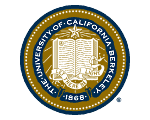Michael P. Kilgard
Professor of Neuroscience, University of Texas at Dallas
Directing Cortical Plasticity to Understand and Treat Neurological Disease
Wednesday 21st of September 2011 at 12:00pm
Redwood Center, 508-20 Evans
Even simple experiences activate large numbers of neurons in the central nervous system. It is not at all clear how many neurons are needed to generate a sensory percept or how activity among these neurons leads to useful behavior. Training-induced map plasticity seems to suggest that many neurons contribute to the perception of even simple stimuli. Our recent demonstration that map plasticity aids discrimination learning but is not needed for accurate discrimination (Neuron, 2011) suggests that a new model of brain function is needed. In the Expansion-Renormalization Model large numbers of neurons are engaged during the early stages of learning so that a subpopulation of neurons that is most effective in performing the task can be identified. This new selectionist model makes specific predictions that can be tested with available molecular techniques. The model also predicts that small numbers of neurons could generate phantom percepts such as chronic pain and tinnitus, which might be reversed using large scale plasticity. Pairing brief pulses of vagus nerve stimulation (VNS) with tones is sufficient to eliminate both the neural and behavioral correlates of tinnitus in rats (Nature, 2011). Encouraging early results in tinnitus patients suggest that VNS-directed neural plasticity might be useful for treating other common neurological disorders, including amblyopia, stroke, dyslexia, and autism. Restoring normal function is likely to require a detailed understanding of the mechanisms relating neural activity to behavior. Similarities in animal and human speech sound processing suggest that it will be possible to conduct extensive preclinical testing of novel human therapies for communication disorders.(video)
Join Email List
You can subscribe to our weekly seminar email list by sending an email to
majordomo@lists.berkeley.edu that contains the words
subscribe redwood in the body of the message.
(Note: The subject line can be arbitrary and will be ignored)

